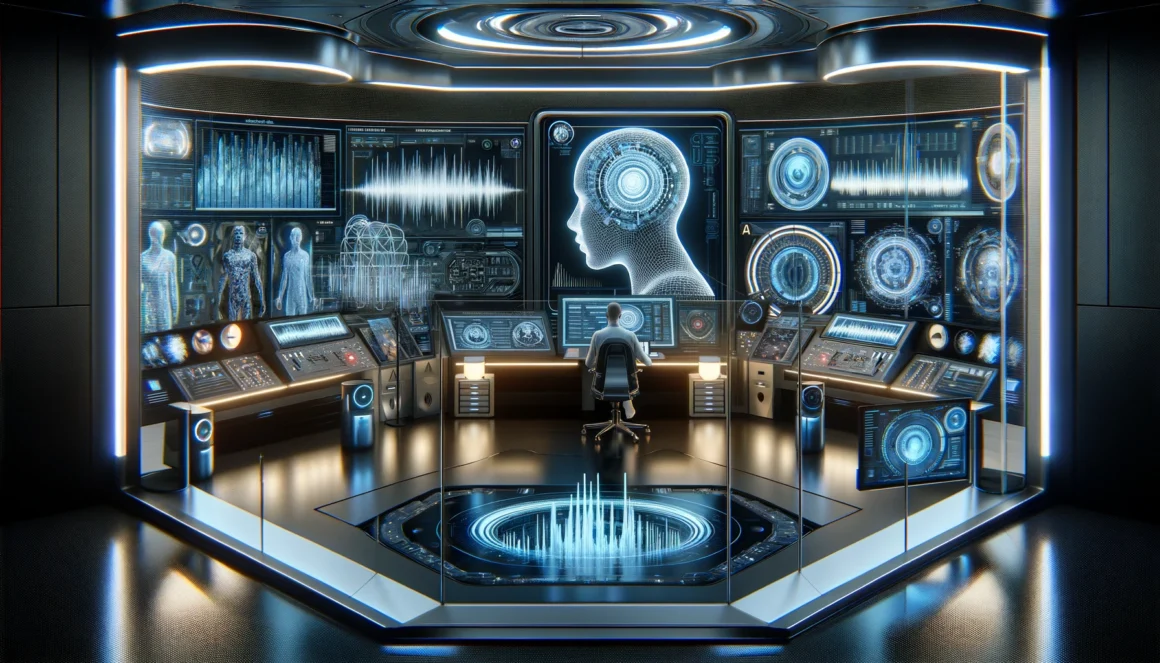Artificial Intelligence (AI) technology has taken a quantum leap in replicating human voices, offering a blend of opportunities and challenges. This groundbreaking advancement is not just about mimicking speech; it’s about creating a seamless and dynamic interaction between humans and machines. This article delves into how AI technology replicates human voices, its applications, benefits, cybersecurity concerns, and the ethical landscape that shapes its use.
The Mechanism Behind Voice Replication
AI voice replication technology begins with a sample of the target voice, sometimes as short as 15 seconds. This sample is then analyzed by AI algorithms to understand its unique characteristics, such as pitch, tone, and rhythm. Leveraging deep learning, the technology can generate a synthetic voice that mirrors the original speaker’s vocal attributes, allowing it to produce new speech that sounds remarkably similar.
Applications of AI Voice Replication
The applications of AI voice replication are vast and varied. In the realm of personal assistance, it enables the creation of more natural-sounding and personalized virtual assistants. In media production, it facilitates the generation of voiceovers in multiple languages, democratizing content for a global audience. Furthermore, it holds transformative potential in healthcare, particularly in restoring the voice of individuals who have lost the ability to speak due to illness or injury.
Voice Engine
OpenAI’s latest development, Voice Engine, showcases groundbreaking technology that can recreate human voices from just a 15-second recording. As reported by The New York Times, this tool not only reads text in multiple languages but also exemplifies the advanced capabilities of synthetic voice technology.
Voice Engine allows the synthesis of a person’s voice in various languages, raising concerns about potential misuse, such as disinformation spread and impersonation risks. OpenAI is testing this technology with select businesses and is considering safeguards like watermarking to mitigate abuse. This technology could benefit individuals who have lost their ability to speak due to illness or injury, as demonstrated with a woman whose voice was recreated post-brain cancer.
Benefits of AI Voice Technology
- Enhanced Personalization: AI voice technology enables personalized interactions on digital platforms, making virtual assistants and customer service more relatable and effective.
- Accessibility Improvements: It provides significant advancements for individuals with speech impairments, allowing them to communicate effectively and regain a crucial part of their daily lives.
- Efficiency in Content Creation: Streamlines the production of multilingual content, making it easier and faster to produce voiceovers for global audiences in various languages.
- Innovative Healthcare Solutions: Offers potential for voice restoration for those who have lost their ability to speak, enhancing their quality of life and interaction with the world.
Cybersecurity Concerns and Measures
- Potential for Misuse: The technology can be used for phishing attacks, impersonation, and identity theft, raising significant security concerns.
- Unauthorized Access: There is a risk of unauthorized access to voice-protected systems, such as secure phone lines or voice-activated devices.
- Security Measures:
- Multi-factor Authentication: Implementing additional verification methods beyond voice recognition to secure access to sensitive systems.
- Synthetic Voice Detection: Developing advanced tools to distinguish between real and synthetic voices, reducing the risk of misuse in critical applications.
Ethical and Regulatory Considerations
The ethical and regulatory landscape surrounding AI voice replication technology is complex. Concerns about consent, privacy, and misuse have led to calls for clear guidelines and regulations. Establishing ethical standards and developing technologies like digital watermarking are crucial steps in ensuring that voice replication is used responsibly and transparently.
The Future of AI Voice Replication
The future of AI voice replication technology is bright, with ongoing advancements promising even more realistic and versatile voice synthesis capabilities. However, the key challenge lies in balancing innovation with the need for privacy and security. Ensuring responsible use and management of this technology will be critical as we navigate its potential and pitfalls.
Conclusion
AI technology that recreates human voices is a testament to the remarkable strides we have made in the field of artificial intelligence. While it opens up a world of possibilities, it also necessitates a cautious approach to manage its implications. By fostering innovation while upholding ethical and security standards, we can harness the power of AI voice replication to enrich our lives and society.



